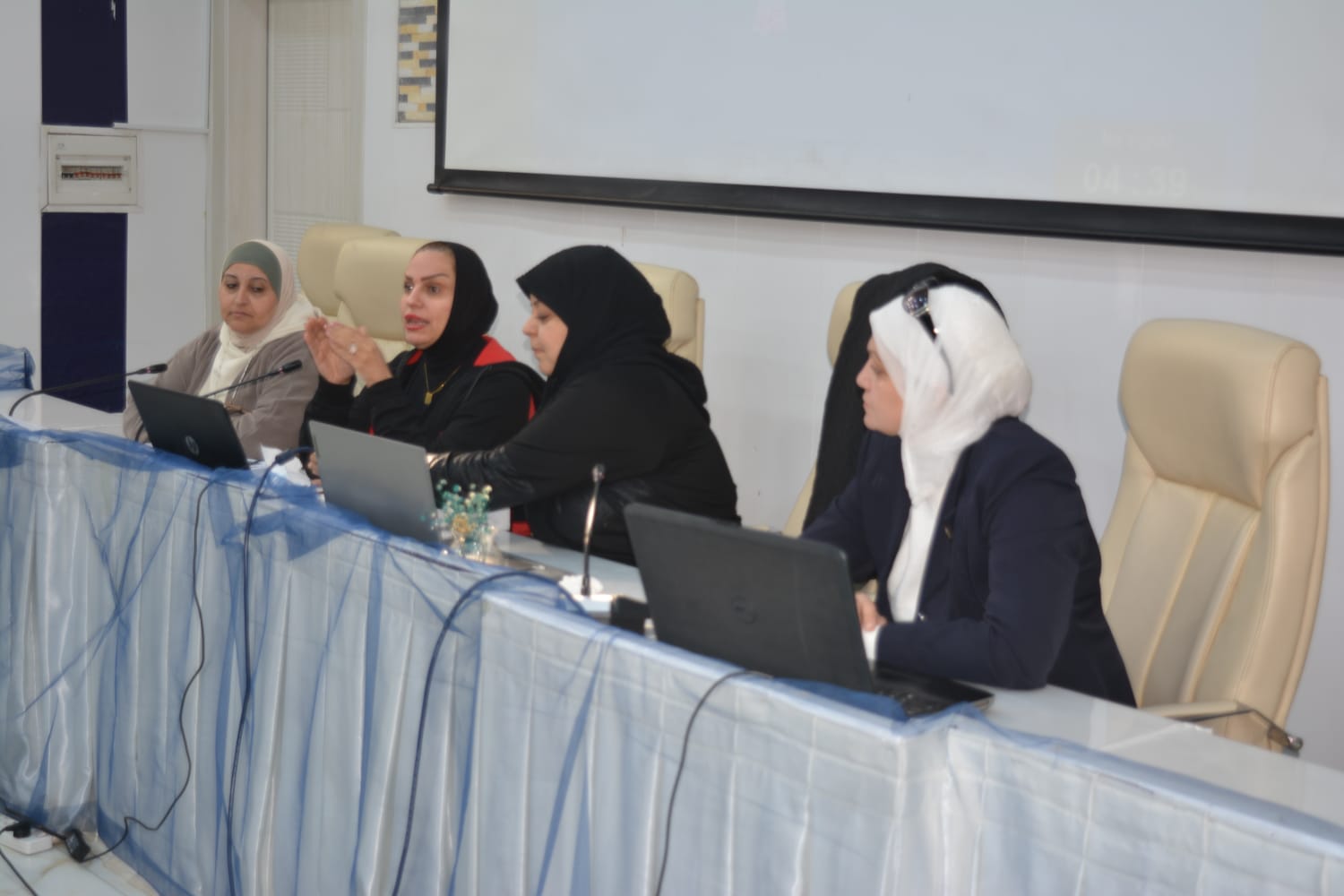The Continuing Education Unit at the College of Physical Education and Sports Sciences for Girls, University of Baghdad, held a training course entitled (Developing Administrative Skills for School and Ministry of Education Workers), presented by theoretical and Team branch members, including Prof. Dr. Najla Abbas Al-Zuhairi, Prof. Dr. Sundus Musa, Asst. Prof. Dr. Maysaa Nadeem and Asst. Prof. Dr. Nibal Karim.
The course focused on three main axes: The first was presented by Dr. Al-Zuhairi, discussed (educational supervision, its concept, tasks, importance, goals, characteristics, types represented by democratic, scientific, creative, and leadership supervision, and qualities of a successful supervisor. Dr. Sundus and Dr. Maysaa presented the second on (school leadership, its concept, and types: transformational, service, democratic, authoritarian, diplomatic, distributed, transactional, and responsible, school administrations, administrative skills required for school principals, which include human, conceptual and technical skills). Dr. Nabal presented the third axis, discussed (problem analysis and decision-making skills and planning skills, the concept of decision-making, the relationship between the problem and the decision, the difference between decision-making and decision-taking, and administrative levels in the organization, including senior, middle, and executive management).
This course achieves one of the goals of sustainable development, represented by the fourth goal of quality education.
